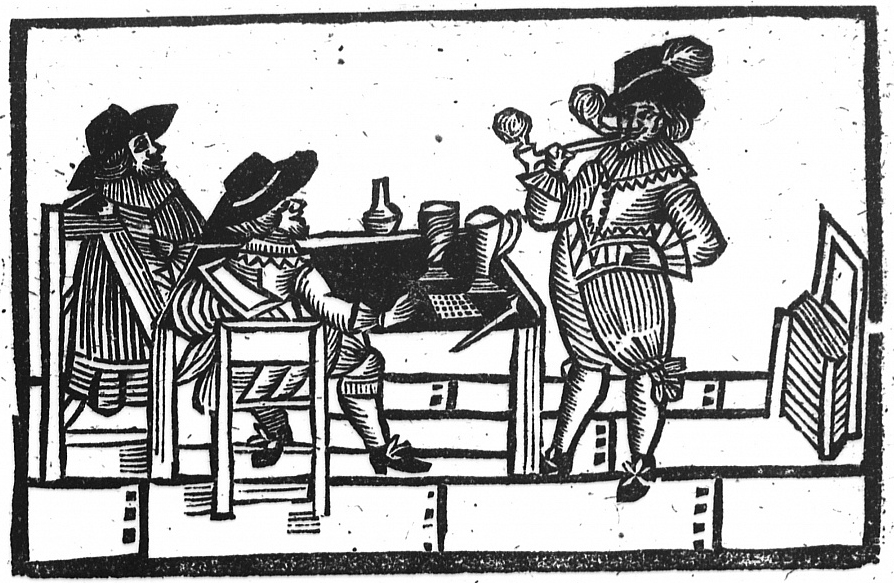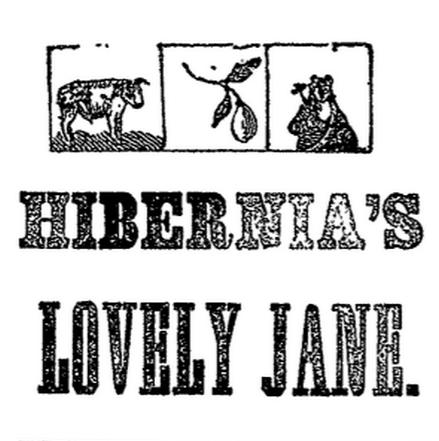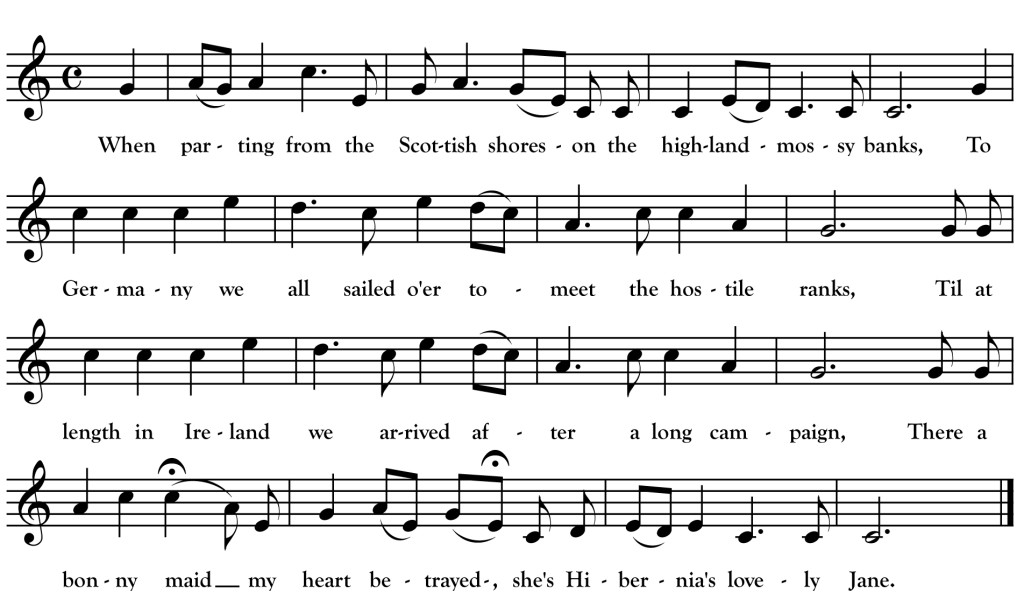Three Nations

In the year of eighteen hundred, I believe, and twenty-five,
A story true I’ll tell to you as sure as I’m alive,
It was of three jolly heroes bold who happened to meet by chance,
For the sake of fun each man begun his country to advance.
Refrain (use first two lines of melody):
With your shamrock green, the thistle keen, together with the rose,
Your abundant sons with their swords and guns have oft times faced their foes.
Says George “We are a nation that’s proper neat and tall,
There is no one that can us resist, or break our wooden wall,
Oh, our ships can beat all nations no odds would come again’ ’em,”
“Arrah faith” says Pat “you may well say that when the Irish lads are in ’em.” (refrain)
Says Pat “we are a nation that ramble up and down,
And on the fields of battle we are in thousands found.
Give me the Fág an Bealach boys and the Connaught Rangers too,
And we’ll stand our ground ’gin all the French who fought at Waterloo. (refrain)
Says Andrew “We are a nation and that I’ll not deny,
We’ve never lost a battle, nor from our colors fly.
We have often proved good soldiers true where the bullets like hailstones flew,”
“Oh yes” says Pat “I remember that that day at Waterloo.” (refrain)
So Andrew drank to St. Andrew, for to cause another duel,
And George drank to St. George, who did the dragon kill,
And Pat drank to St. Patrick, and he mentioned Wallace too,
And they all shook hands and blessed the land that’s far from Waterloo.
_______________________________________
This rare song harkens back to Napoleon and the English, Scottish and Irish men that fought against him under the English flag. Helene Stratman-Thomas collected it in 1941 from second-generation Scotsman Thomas Hunter [b. 1868] of Galesville, Wisconsin. Hunter learned it on a log drive on the Prairie River north of Grand Rapids, Minnesota, from Ross Byers of Michigan who got it from his own Scottish immigrant father. You can hear Stratman-Thomas’ recording of Hunter online via the wonderful Wisconsin Folksong Collection made available by the University of Wisconsin.
Unsatisfied with Hunter’s melody for the song, I borrowed another popular Great Lakes melody when I recorded “The Three Nations” for my CD Minnesota Lumberjack Songs. Since then, I came across a version sung by Beaver Island, Michigan singer Mike J. O’Donnell (recorded in 1938 by Ivan Walton). O’Donnell uses the above air which I think works quite well. O’Donnell (a source for last month’s song as well) learned it from Hughie Boyle of Harbor Springs, Michigan.
The Napoleonic Wars actually had a hand in spurring the northwoods song tradition itself. Napoleon’s blockade British shipping routes to Baltic timber suppliers helped open up Canadian forests as a source for replenishing the British fleet. Timber ships heading from Liverpool to St. John, New Brunswick or Quebec City for Canadian timber brought thousands of war-weary Irish settlers to Canada where they worked in the woods, sang songs and made new lives “far from Waterloo.”

![PrintMusic! 2004 - [Three Nations]](http://www.evergreentrad.com/wp-content/uploads/2015/10/Three-Nations-1024x504.jpg)

